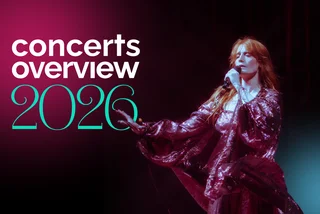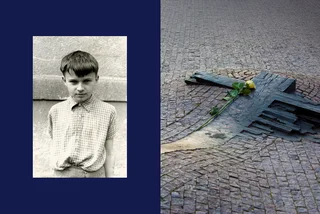Despite the communist regime dictating, to some extent, what you could sing about from the late 40s till 1989, music was one of the few available expressions of freedom and individuality during this time. It was, in essence, a cultural counterweight to the oppression and limits placed on the general public by the regime. It goes without saying that many generations of Czechs were raised with music as an integral part of their life. As the saying goes, “co Čech, to muzikant”: each Czech, a musician.
The 1960s began a modern era of Czech pop music, which evolved heavily through the 70s and 80s and was often influenced by tracks from abroad. Some of the stars have evolved along with the changing time, while others burned out like candles in the wind. In this article, we will cover the leading figures of these first three decades; check back in a few weeks for a look at the 90s and the first decade of the 21st century.
PARTNER ARTICLE
1960s
The 1960s were extremely significant for the Czech music scene. Music and movie production was plentiful, and along with it, especially towards the latter half of the decade, there was an apparent relaxation in the political circles as well in music censorship.
Singers who shone the brightest would most certainly include Eva Pilarová and Waldemar Matuška, who gained widespread fame with their hit “Láska nebeská.”
The so called “Golden Kids”, personified by Marta Kubišová, Václav Neckář andHelena Vondráčková, are certainly no less significant. Some of their hits in the 60s are still, to this day, among some of the most famous Czech pop songs. The 60s also saw the birth of Olympic, one of the most popular pop-rock bands. One of their earliest works was the “Želva” album, featuring the track with same name. Karel Kryl, who was openly critical of the regime, began his singing career with the release of the album “Bratříčku zavírej vrátka” following the invasion of 1968. Soon after, his songs were banned and he emigrated to West Germany. Kryl continued to release albums through the 70s and 80s in exile, feeding the underground music scene in the Czech Republic.
Hana Hegerová, likened by many to Edit Piaf in style, also began her singing career during this time. Jiří Suchý has an unerasable place in this era as well. Some of his earliest hits included “Babeta” and “Pramínek vlasů.” Blue Effect and Vladimír Mišík are also worthy of a mention. Their work included the hit song “Sluneční hrob”.
Finally, the late 1960s and 1970s saw the unorthodox music of Plastic People of the Universe gain popularity, primarily with the young and rebellious. The communist regime revoked their music license; despite this, the Plastic People of the Universe continued illegal music production, and were at the center of communist oppression and censorship as well as brutal police backlash at their performances, operating largely on the underground music scene.
1970s
The 1970s, for many, represented a strengthening of the grip of the regime. Regardless, music evolved further and more stars surfaced. Among some of the most notable would be Hana Zagorová, for example, with her 1975 hit “Cesta ke štěstí.” The 1970s would not be the same without country music superstar Michal Tučný. His greatest hits included “Báječná ženská” and others, many of which have become synonymous with the tramping lifestyle. Most Czechs have experienced at least one of his songs being sung while grilling a “buřt” by the fire.
The now-eccentric star Jiří Korn gained widespread appeal in the 70s as well, represented by his 1979 hit “Žal se odkládá.” He is one of the few singers who was allowed to perform in western European countries. Marie Rottrová also enjoyed a period of great fame. Most Czechs will remember the energized and rebelious song “Markétka”, which to this day represents a classic staple from the 70s.
It would be a crime not to mention Karel Zich. He had a voice many likened to that of Elvis Presley. He favored spiritual songs as well as rock’n’roll. Some of his most memorable tracks included “Máš chuť majoránky” and “Alenka v říši divů.” Zich was also a member of the group Spirituál Kvintet, which debuted in the 1970s and continues to be popular to date. One should not forget Jiří Schelinger, who had a very distinct crackling voice, which is forever linked with his legendary track “Holubí dům.”
1980s
The 1980s saw a major revolution in the various musical styles. This was a global trend, and Czechoslovakia was not left untouched, with an increase in electronic music elements. Michal David is the crowned king of electronic pop music of the 1980s; his first album was released in 1982 and his latest in 2012. Some of his unforgettable hits from the 1980s included “Colu, pijeme colu” and “Nonstop”, which to this day is played frequently at retro clubs. Michal David’s hits from the cult film series Discopříběh are here to stay, and have brought David stardom. Some even say that the Czech hockey team enjoys his music in their changing rooms prior to major international matches.
Petr Kotvald and Stanislav Hložek are two other popular pop singers from the 1980s, whose songs included the hit “Holky z naší školky.” Others included Dalibor Janda, with hits such as “Padá hvězda” and the unforgettable classic “Hurikán”. He had a voice that could never be confused with anyone else’s. Much like with Hložek and Kotvald, Janda was a favorite with women.
Popular female singers of the era included Iveta Bartošová, whose memorable hit “Víš lásko” transcended the time. Unfortunately, she is now best known for her recent love affairs, failed comebacks, and her tabloid newspaper magnetism. Petra Janů also became very popular, and her hits included “Říkej mi” and “Už nejsem volná”, which will most definitely ring bells for Czechs who lived through the 1980s.
Although already well-known, Brontosauři became very popular towards the late 1980s and 1990s. Some of their 80s hits included “Tulácký ráno”, and countless others, which now represent popular classics from the decade.
The Transcendent Man
You may wonder why Karel Gott was not yet mentioned. There is a good reason for that. Unlike many of the above, it would be unfair to place him into a given era as he enjoyed, enjoys, and will most likely still enjoy further fame that very few, if any at all, can rival in the Czech Republic. With some 37 Český slavík awards and widespread international production and presence, he is one of the most highly revered Czech musicians. Many refer to him simply as “Kája.” He has been dubbed the “Golden voice from Prague” and began his singing career in the late 1950s, but his real stardom began in the 1960s, culminating in the second half of the 1980s. “Trezor”, “Kávu si osladím”, and “Když muž se ženou snídá” are among some of his early hits.
To this day, he retains a solid position on Radio and represents a constant on the Czech music scene, cooperating with many of the current pop stars and appearing on countless shows on TV.
Who are your favorite Czech pop stars from the 60s-80s?
Related articles












 Reading time: 6 minutes
Reading time: 6 minutes 

























